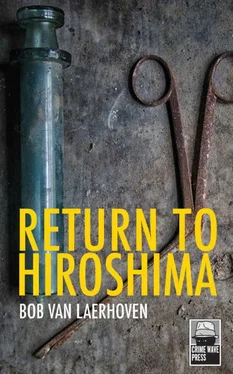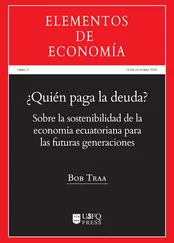On July 18th 1930, the imperial physician observed that the life of newborn Prince Norikazu, sired by a concubine, was insufficiently viable and that he was therefore not fit to be the emperor’s successor. The decision was made to let the firstborn of the arahitogami die. The imperial physician was terrified at the very thought and suggested a daring new treatment based on growth hormones. They started with growth hormones taken from cattle, but when the results turned out to be poor, the court doctors started distilling human growth hormones from the pituitary glands of imprisoned Manchurian guerrilla fighters. The prisoners were executed and the precious hormone was immediately extracted from the pituitary gland. They were convinced that fresh corpses would produce better quality. The treatment worked: the child grew. It later transpired that the administered doses were too large and the child developed gigantism and a severe form of acromegaly.
When Prince Tsugu, now known as Emperor Akihito, was born to Hirohito’s lawful wife Nagako in December 1933, the emperor decided that Tsugu, and not my father, would be his successor. Prince Norikazu was kept from the public. Until he was ten, he lived in a separate wing of the imperial Edo Castle in Tokyo. Accounting for his personal desires and preferences, he was trained during the Second World War in a number of secret Japanese laboratories where experiments were carried out on prisoners of war. After the Second World War, when his father renounced his divinity and was considered responsible for war crimes, Prince Norikazu withdrew into the hidden regions of our society, assisted by Shinto priests and high ranking officers who were still convinced that Norikazu should have succeeded his father as firstborn son. The imperial family decided to act as if Norikazu no longer existed and tolerated his actions as long as he avoided public exposure. Prince Norikazu grew bitter and withdrew even further from everyday life. He became the leader of a secret society intent on reinstating imperial Japan.
Before I was imprisoned in this basement I had official documents at my disposal revealing my father’s identity. They confirm my present testimony
• his birth certificate, signed by the emperor’s physician
• the military logbook kept by Colonel Tadao Masamada, commander of Unit 731 on Okunoshima Island
I am no longer able to present this evidence because I no longer have the documents in my possession. But as princess of the Japanese imperial family I swear that every word is true.
Let me conclude: with all the strength that remains in me I curse the family of the Showa tenno , to which I myself belong, because it rejected my father.
May all the kin of the Showa Tenno now and in the future live a life of pain and suffering, as I have done.
Hiroshima – the Righa Royal Hotel – Takeda and Becht – morning, March 15 th1995
Inspector Takeda wakes with a start and sees the sleeping face of Beate Becht beside him. She’s breathing with her mouth half open. She has small, sharp teeth. Their ankles touch. Her skin is warm. The dream he just had must have been a result of an anxiety attack brought on by the profound confusion of the previous night. In his slumber, the life he had been living, the person he thought he was, became a backdrop in which he had lost his way. Part of him welcomed the anxiety because it anaesthetised his conscious mind. Takeda had been living at odds with himself. He hoped in vain that liberation would come, transcendence, light. Takeda isn’t a believer. Consciousness is an accident, a fabrication of nature. One day it will be extinguished and everything it once imagined will shatter into fragments bereft of context, content and structure. Nothing will remain. Still half asleep, Takeda felt a coldness tighten around his chest and what seemed like enormous pressure in his brain. Panic grabbed him by the throat. His entire being tried to resist, aspired to be reasonable , but a storm rose up inside him: a longing for death inflamed by fear. As if it were yesterday, the inspector remembered a classmate from the 60s who was so proud because his father had penetrated the belly of an American navy ship with a Kaiten, a manned torpedo, and had thus become a kamikaze. Takeda was sixteen at the time and he had listened to his friend’s stories with a mixture of fascination, fear, disgust and incredulity. His classmate had told him that his father had longed for death because it would bring Japan one step closer to victory. Takeda didn’t understand how anyone could long for death. But that didn’t prevent him from feeling a vague sense of jealousy towards a man he had never known: his friend’s father had already rounded the cape of death with success.
Takeda turns and sees his reflection in the chest of drawers against the wall. His body tenses instinctively. Then he reminds himself that the man in the mirror is not a stranger, but himself with pitch black hair, dyed earlier that night by Beate Becht. When he had knocked three times at her door as agreed and walked into her room, he found her busy, close to a frenzy: “Let me dye your hair. You’ll look like a completely different man. And they won’t expect you to be in the company of a foreigner.” She pointed to the bathroom. “It’s all ready.”
“Did you manage to film everything?”
“No problem. I’m a professional.” She forced a laugh.
“If they check my duty roster they’ll know I contacted you,” said Takeda. “And don’t forget you also gave your name and hotel room number at the hospital when you brought in the Belgian.”
She smiled: “But who’s going to believe that an inspector would sleep over with a witness he was supposed to question? That love at first sight stuff only happens in the movies, Akio.” She hadn’t used his first name before. She noticed the look on his face and added: “Do you have another option? You look exhausted. This hotel room is your best hiding place, for the time being. You can decide what you’re going to do tomorrow. Any better ideas?”
“Where do I sleep?”
“There’s only one bed. But if you want there’s a small sofa…”
“Are the takes clear enough?” asked Takeda abruptly.
Beate Becht grabbed her Handycam dcr-vx1000, according to Sony “the first digital video camera for the consumer market”. She had filmed Takeda’s conversation from under the table. The sound wasn’t perfect, but the pictures were excellent. The date and time indicators were the most important thing. They allowed Takeda to demonstrate to the authorities in Tokyo that Takamatsu had talked with him after the chief commissioner issued a warrant for his arrest on murder charges. Takeda relaxed when he saw the images and followed Beate willingly into the bathroom. An hour later, when they were getting ready to go to bed, Beate Becht heard a strange noise emanating from the same bathroom, something between a sigh and a laugh. “Are you alright?” she shouted. Takeda appeared in the half-open door. “The sight of myself in the mirror was a bit of a shock. I look like an okama with my old face under such pitch black hair, an effeminate old gei .” She asked what the words meant, then laughed and called him a conceited old pansy. He noticed for the first time just how sunken her eyes were. In certain positions it made her boyish face seem gaunt and tired. Her small, compact body lost its boyish grace when she got tired.
They kept their distance in bed, reserved, awkward. Takeda racked his brains for something to say. In the process he fell into a dreamless sleep.
The body beside him sighs, moves.
An arm falls across his chest.
Читать дальше












